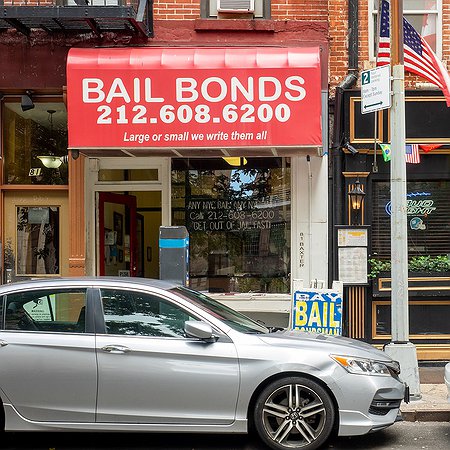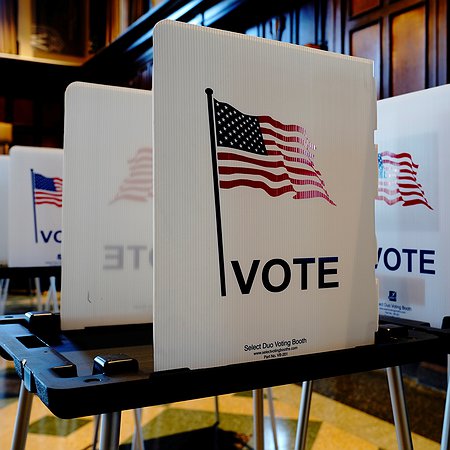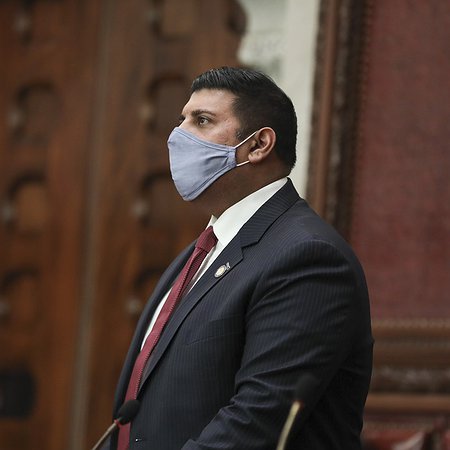Officials, Researchers Debunk Hochul's Plan to Incarcerate More New Yorkers
City officials advocated this week for expanded services and alternatives to pretrial incarceration for people arrested multiple times in New York City, arguing that service-based interventions can reduce crime and that pretrial incarceration should be a “last resort.”
The Briefing

City officials advocated this week for expanded services and alternatives to pretrial incarceration for people arrested multiple times in New York City, arguing that service-based interventions can reduce crime and that pretrial incarceration should be a “last resort.” Researchers also released arrest data this week that debunks Gov. Kathy Hochul’s claim that bail reform emboldened a small group of people allegedly responsible for crimes in the city. Bail reform has nothing to do with these cases, and judges can and do set bail using their broad discretion.
Bail reform did not cause any increases in crime
The release is another example of Hochul’s misuse of data to further her carceral agenda. In March, Hochul cited data from a John Jay College study, arguing that an increase in rearrests for people charged with violent felonies justified her radical proposal to remove the “least restrictive means” standard. Her argument was swiftly debunked by the study’s author.
The data analyzed this week by the New York City Criminal Justice Agency provides similar insights into arrest data, focusing on New York City. It shows that a small percentage of people are being arrested multiple times and missing court in New York City.
Critically, the data also shows this has nothing to do with bail reform. Almost the exact same number of people were arrested five or more times in 2022, after bail reform, as compared to 2018, before bail reform. Claims from Hochul and New York City Mayor Eric Adams that bail reform is driving an increase in recidivism are false.
Over 60 percent of people arrested five or more times in 2022 had bail set or were remanded to jail, compared to 68 percent in 2019, meaning that judges are opting for pretrial detention at a similar rate before and after bail reform.
Support, not incarceration, reduces recidivism according to data and experts
City officials argue that support, not incarceration, will reduce recidivism. Deanna Logan, director of the Mayor’s Office of Criminal Justice, said that providing early access to housing and mental health care is a critical intervention.
“We know that many among the recidivist group are struggling with a heightened level of need, and it means that in specific cases we must employ a much more targeted form of support and supervision to provide intense services, accountability [and] coping skills that will afford these individuals an ability to overcome their behavior,” Logan said.
Incarceration should be a “last resort” according to Deputy Mayor for Public Safety Philip Banks.
Officials advocated for an expanded vision of community-based supervision programs that keep people out of jail. Even a short time in jail is profoundly destabilizing – family separation, housing and jobs lost, an increased likelihood of future arrests. Jails do not make us safer. Investing in alternatives to incarceration is cost-effective, too. The cost of incarceration has skyrocketed to over half a million dollars per person per year. The extreme burden incarceration places on taxpayers prompted New York City’s Comptroller to advocate for a jail system that is “as small as possible.”
Hochul’s proposal makes no sense
Consider the two key takeaways from NYCJA’s data release: 1) another tranche of data showing that bail reform does not produce more rearrests and that judges continue to employ their broad discretion to set bail on people who are arrested multiple times on eligible charges and 2) researchers and experts stating clearly that providing supportive services to people who are arrested – not incarcerating them – is a viable solution to reduce crime in New York City.
It makes no sense, with knowledge of those takeaways, to continue to advocate for a radical policy change that would open the door for the mass pretrial detention of the people described in the data release above. But that is what Hochul, Adams, and their pro-carceral allies are doing – against all reason and evidence.
Matt Katz’s recap of the data release in Gothamist closes with the below quote from Stanley Richards, the chief operating officer of an organization that provides supervised release and wraparound services to people caught in the criminal legal system:
“Do you want to really address the underlying causes of incarceration and the disproportionate impact on Black and brown communities? Or do you want again to look at the top line concern and fail to address the root causes? And we have an opportunity now to address the root causes.”
Story Link
Story in Gothamist








